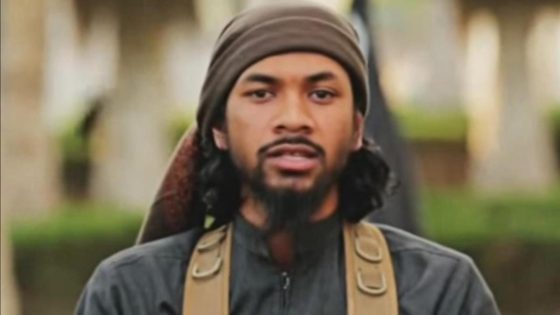An accused Australian jihadi was “enticed” by a radical Islam sermon delivered on the day of his conversion and was influenced by members of the mosque, a court has been told.
Once branded Australia’s most-wanted alleged terrorist, Neil Christopher Prakash faced Melbourne Magistrates Court on Monday accused of six terrorism-related offences.
The charges include engaging in hostile activity in a foreign state, being a member of a terrorist organisation and advocating terrorism.
Former friends and acquaintances of the Melbourne-born ex-rapper, who allegedly joined the Islamic State from 2014 to 2016, spoke of the change in their relationship with Prakash after he converted to Islam in 2010.
The court heard from two witnesses, Joseph Almatrah and Ibrahim Halligan, who were with Prakash on the day he converted from Buddhism.
They had planned to visit a mosque in Dandenong where Prakash signalled wanting to announce his conversion but “by chance” ended up attending the Al-Furqan mosque in Springvale South instead.
An acquaintance who met Prakash through a cousin, Mr Almatrah told the court when they arrived at the mosque, Sheikh Harun Mehicevic was delivering a sermon.
Both Mr Almatrah and Mr Halligan expressed their discomfort and feeling out of place with the sermon, which was described as inflammatory and violent.
“I didn’t agree with what was being said,” Mr Almatrah said.
Being from a Syrian family who was loyal to the government at the height of the civil war at the time, Mr Almatrah said he was concerned about the messages of loyalists being “spies and snakes”.
“I’m sitting in this service and he’s talking about how we’re killing – very inflammatory about people from our country – saying some not nice things,” he said.
Mr Halligan described the sermon as “nonsense”.
Defence lawyer Isabelle Skaburskis asked how Prakash took the sermon and its message.
“It was enticing to him,” Mr Almatrah responded.
Mr Halligan recalled telling his close friend: “Those guys don’t seem good”, to which Prakash initially agreed.
The court was told of how Prakash’s behaviour and beliefs changed after that fateful day.
Mr Halligan said they had talked about Sufism, a peaceful form of Islam, which Prakash was interested in before he converted to Islam.
“He was very peaceful at that time. I have never known him to be someone who instigated trouble,” he said.
Mr Halligan said the mosque’s members persistently communicated with Prakash and invited him to events after his conversion.
Prakash told his friend that he felt guilty if he didn’t respond to their constant contact, believing he owed them because he converted.
The messages from the mosque’s members were described as “politics and agenda-based preaching”, Mr Halligan said.
Prakash communicated online with them, eventually becoming a member himself, which led to a behaviour change that affected the friendship between him and Mr Halligan.
Prakash, who has previously refused to appear in court, asked to be excused from attending after his lawyer said he was experiencing “some difficulty” a few minutes into the hearing on Monday morning.
Magistrate Rohan Lawrence granted Prakash a leave of absence until his committal date.
The court will hear from more witnesses on Tuesday.
Source Agencies



